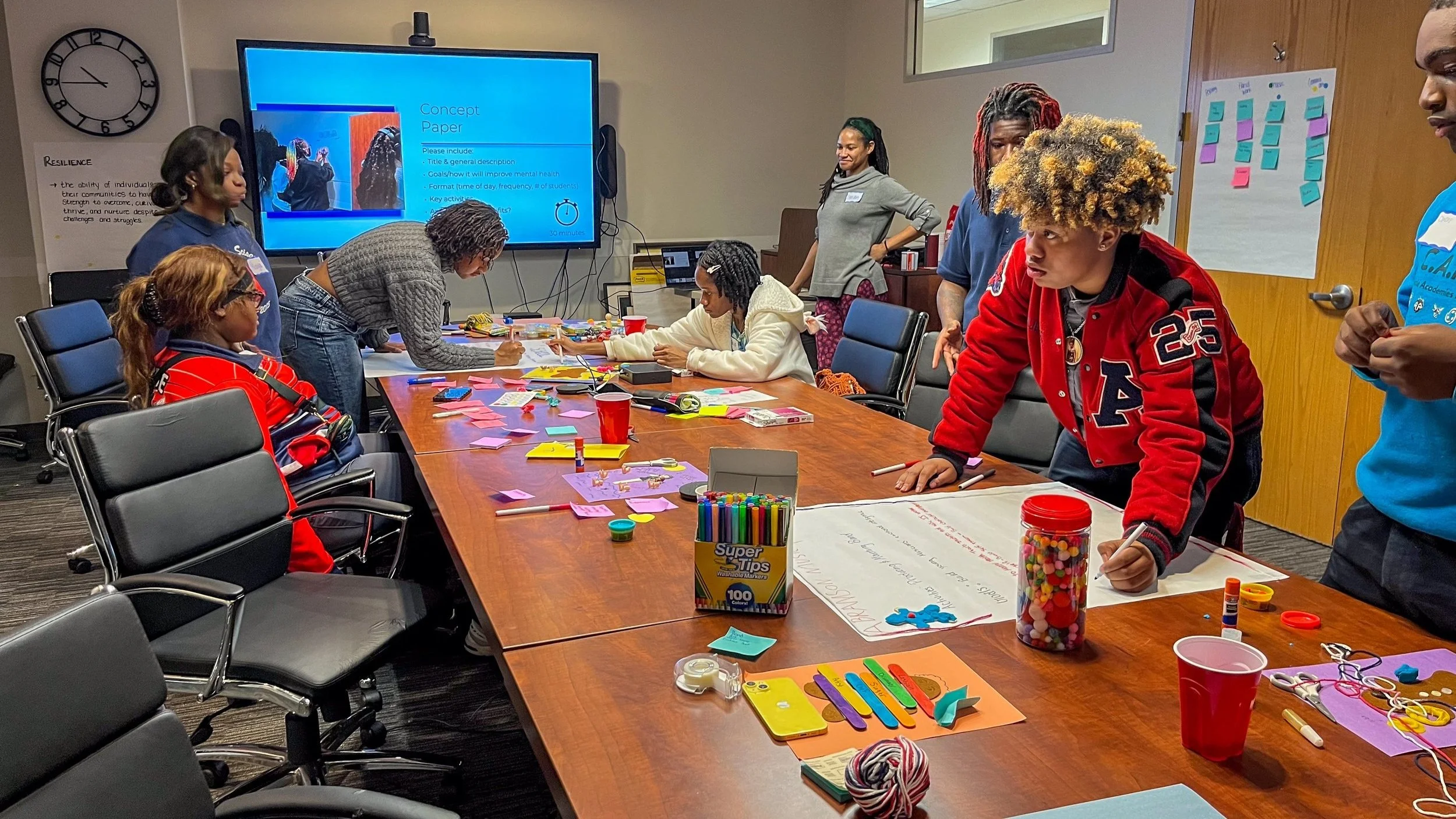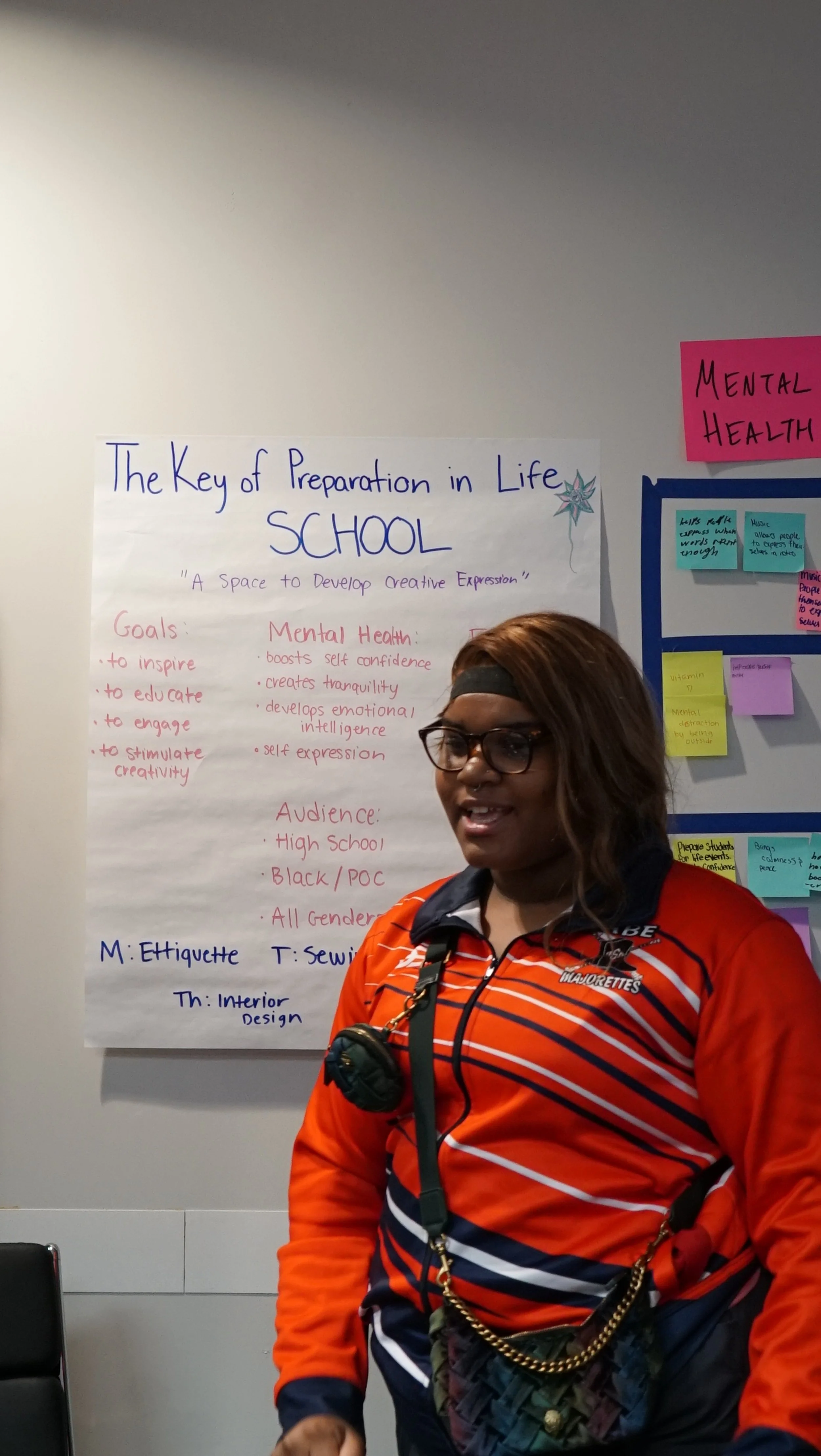Champions NOLA
The Collective for Healthy Communities (CHC) Team is excited to announce the Spring launch of Champions NOLA, a new program that seeks to reduce the impact of traumatic exposures on children at school, in the community, and at home. It will offer psychoeducational workshops to destigmatize conversations about mental health and train youth Champions to become better wellness advocates for themselves and their peers. Champions NOLA aims to prepare youth with the tools, information, and resources they need to start potentially life-saving conversations with their peers and safe adult supports. In addition to basic mental health training, youth participants will also engage in art-based healing activities, such as music and dance, to strengthen their coping skills and promote resilience.
In January, our CHC and Communications teams began working with the Champions Advisory Board (CAB). This board is made up of youth leaders with an active connection to or interest in the arts, such as members of a high school marching band, dancers, and visual artists. Almost all CAB members also have the added bonus of having previously completed Teen Mental Health First Aid (tMHFA) training with IWES. Throughout the Spring 2025 school semester, the CAB will guide the development, implementation, and evaluation of Champions NOLA programming in order to support positive mental health outcomes and levels of resilience amongst New Orleans youth. The CAB will also ensure that the workshops we lead with youth are impactful, culturally relevant, and of the highest quality possible.
During their first meeting, the CAB engaged in a Human-Centered Design (HCD) workshop and generated ideas, activities, and focal areas that have provided the shape and overall guidance for the Champions NOLA program. HCD is a methodology that prioritizes the needs and experiences of the people who will use a service or product; aiming to find creative and effective solutions. During that session, CAB members highlighted the connections between wellness and access to creative outlets. They shared that when music and art classes are taken away, it makes students feel like their culture is being erased and that they're "no good" or "worthless," which breeds a sense of "hopelessness." The CAB emphasized that music and art classes provide healthy outlets for expression and can teach youth how to deal with anger without losing control; they believe that students need a way to express and communicate through mediums beyond words. As beautifully stated by one CAB Member,
"When people have a way to express themselves, anything negative that might be going on inside them has a chance to get out."
Following the first session, in February the CAB members worked with CHC to rank and prioritize which mental health topics we should incorporate into an in-school pilot of the Champions curriculum, which will also include creative and arts-based healing activities. The youth identified the following areas of interest as being the most important for this type of programming; general mental health training; understanding the impact of trauma on wellness; and how to identify and address a potential mental illness or concerning substance use. The pilot will take place this Spring, and CHC is collaborating with school partners to identify pilot sites for Spring implementation, so look out for updates about how it’s going in next quarter’s newsletter!
Another core component of the development of this new program is the establishment of a robust and comprehensive evaluation plan. In order to evaluate how well this program aligns with our goals and vision, we will use a mixed-methods (qualitative and quantitative) approach to measure program outcomes. As a part of our evaluation plan we will be assessing participants' understanding of the topics that we present to them during the mental health training; their ability to recognize mental health crises and distress; their knowledge of coping strategies and crisis prevention techniques; and their capacity to identify trusted adults. Additionally, the CAB will complete surveys to measure the impact of participation in arts-based activities on emotional and mental well-being, such as enhanced relaxation, self-worth, feelings of hope, and motivation to pursue their goals.





